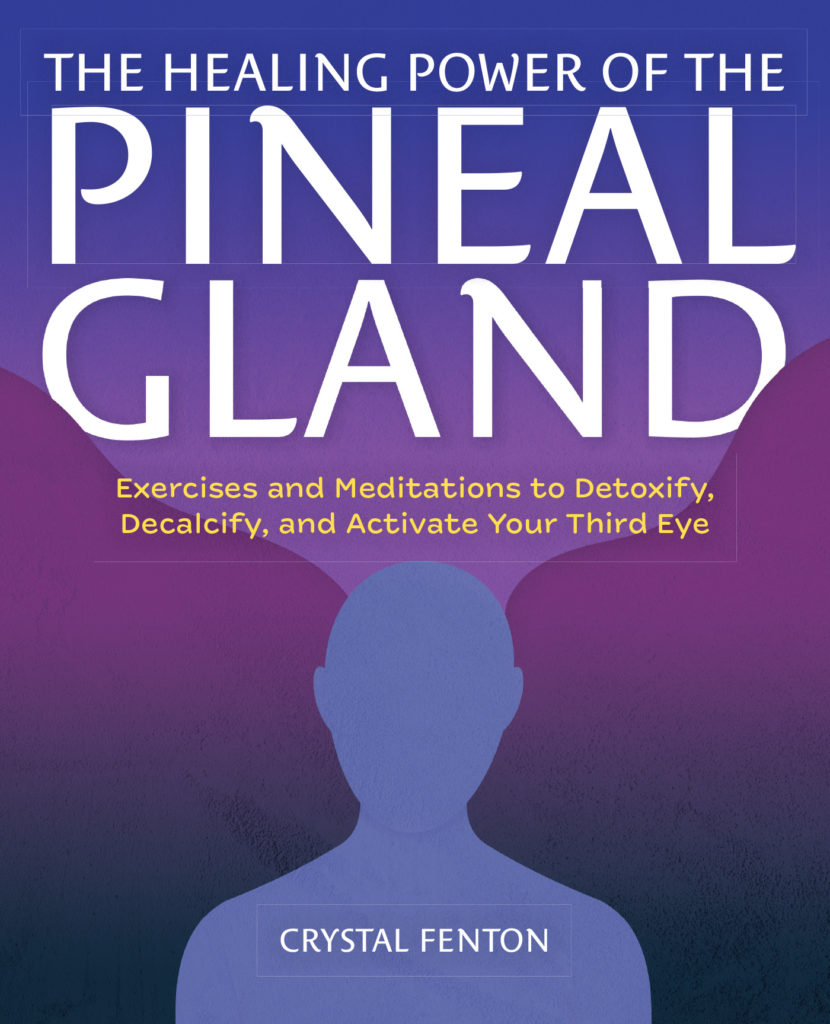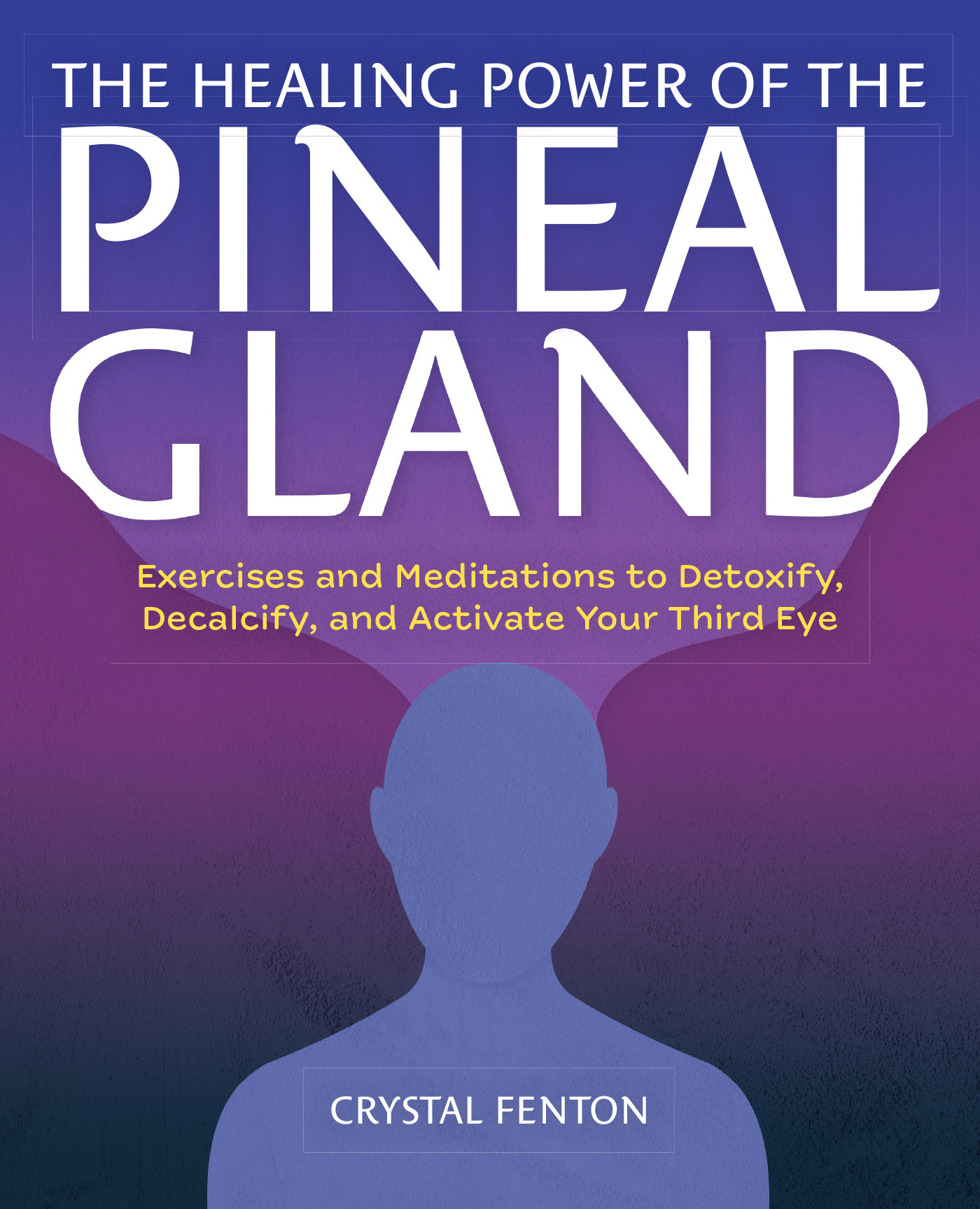
Pineal Gland 101: The Healing Power of Your Third Eye
- Mind, Body, Spirit
 You’ve likely heard of the third eye chakra, yet you may not be familiar with what powers this energetic source within the body. Enter: The pineal gland. Small yet mighty, it can help you tap into the transformative power of the third eye chakra.
You’ve likely heard of the third eye chakra, yet you may not be familiar with what powers this energetic source within the body. Enter: The pineal gland. Small yet mighty, it can help you tap into the transformative power of the third eye chakra.
Pineal Gland Powerhouse
Residing near the center of the brain and aligned with the midpoint between the eyebrows, the pineal gland location is central to many important physical processes and energetic vibrations that occur each day. About the size of a grain of rice or a pea, this small, pinecone–shaped gland impacts many elements of your life, from how you make decisions to your perception of reality.
Connecting the Pineal Gland & Hormones
One of the most significant parts of pineal gland function is to produce some of the most influential hormones found in the body, melatonin and serotonin. The production cycle of these hormones is fairly simple: During the day, when there’s sunlight, the gland produces serotonin. In darkness or under moonlight, it produces melatonin as a response to darkness, thereby regulating sleep cycles and sleep quality.
Centering Your Energy
The pineal gland location deep within the brain may be a signifier of its importance in both physical and emotional wellness. The pineal gland third eye chakra connection fuses the spiritual realm, awakening of energy with our physical existence. To better harness the pineal gland’s healing power, it’s also helpful to stay mindful when it comes to what goes in and on our physical bodies.
Detox, Decalify, Decompress
Fluoride, for example, tends to accumulate at higher levels within the pineal gland than other parts of the body. This has the potential to lead to pineal gland calcification, or a hardening creating a pineal cyst, which may hinder or impair melatonin production. Fluoride, in its synthetic form, is one toxin that can weaken and otherwise negatively affect the pineal gland as well as other organs throughout the body. Increased fluoride, from toothpaste or tap water or both, can cause the pineal gland to harden or calcify. This may cause a decrease in melatonin production and disrupt the wake-sleep cycle.
First, you might consider completely ceasing the use of any toothpaste containing fluoride, which can calcify the teeth or be absorbed into the bloodstream, eventually making its way to the pineal gland. Switch to a fluoride-free formula that includes more natural ingredients in order to help minimize the risks of excess fluoride absorption in the body or buildup on the teeth.
Next, swap tap water and use only filtered water, both for drinking and brushing your teeth, to further eradicate excess fluoride intake.
Then, follow the old adage: “You are what you eat.” Opt for an unprocessed, whole foods based diet that excludes as much sugar and dairy as possible and focuses on the power of plants, nature’s medicine. This type of clean, natural nourishment can bolster your overall health. Foods that are plant-based may also help to boost oxygen levels and bolster immune function.
Incorporate sleep-friendly foods and wellness-boosting nutrients. Eating and maintaining a balanced, healthful diet that integrates magnesium- and melatonin-rich foods can improve and boost the pineal gland’s primary function of producing melatonin. Magnesium is thought to help improve sleep and may help alleviate insomnia.
Focus on foods that may be of benefit for better sleep, including those that are rich in essential nutrients such as: Protein, biotin (vitamin B7), selenium magnesium and melatonin. Think: Leafy greens, turmeric, tamarind, cacao beans, apple cider vinegar, beets, eggs, fish, nuts such as Brazil nuts, mushrooms such as reishis, cereals, fruits such as kiwis and germinated legumes or seeds. Some studies have shown that melatonin stimulates many bioactivities, such as antioxidant activity, anti-inflammatory characteristics, immunity boosting, anticancer activity, cardiovascular protection, and anti-diabetic, anti-obesity, neuroprotective, and anti-aging activities. To further support the elimination of toxins, decalcification and improved tissue renewal, there are other contributors that may support the pineal gland, such as iodine, which can aid in the removal of heavy metals and fluoride.
Simplify With Loving Self-Care
To decalcify the pineal gland and clear it of blockages, detoxification and self-care are key components. Learn more about various self-care practices, mindfulness rituals and exercises to decalcify, detoxify and clear blockages in The Healing Power of the Pineal Gland: Exercises and Meditations to Detoxify, Decalcify, and Activate Your Third Eye Chakra.
Contributed by Crystal Fenton, Author of The Healing Power of the Pineal Gland
The Healing Power of the Pineal Gland
Access the untapped potential of your inner eye with this guide to understanding pineal gland function and how it can improve your sleep, boost your mood, promote peak performance, and ultimately, expand your consciousness. The pineal gland, also known as your third eye, is a pea-size gland at the center of your brain. This
Learn more






